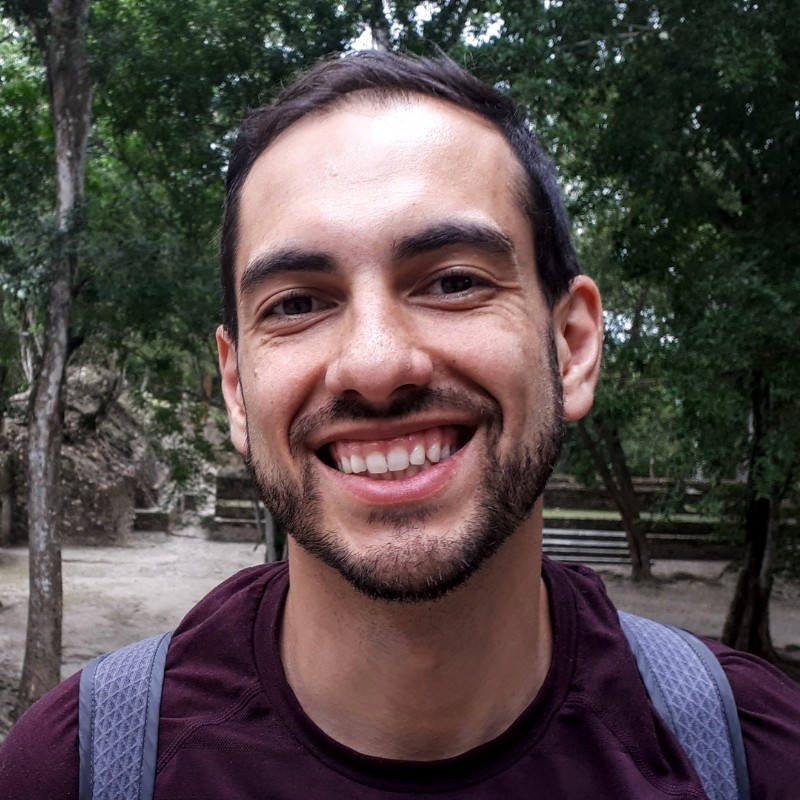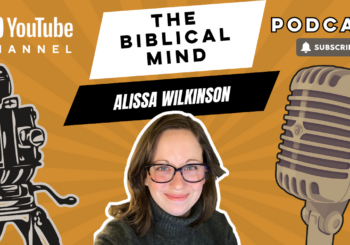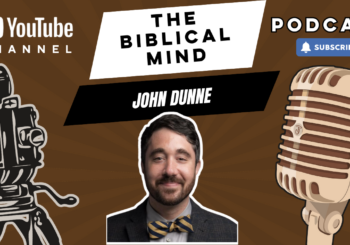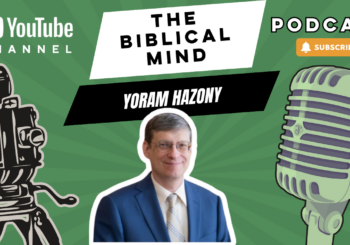What Does the Bible Say about Anxiety? Redirecting the Fear of Death
By the sweat of your brow you will eat your food until you return to the ground, since from it you were taken; for dust you are and to dust you will return.” Genesis 3:19 (NIV)
One often reads reports about skyrocketing rates of anxiety among modern Americans, and many Christians are quick to condemn this anxiety as unbiblical. But are people today really more anxious than ever? And what does the Bible say about anxiety? Do the biblical authors really want us to “cast all our cares” on God until we have no anxiety whatsoever?
Enjoying this article? Read more from The Biblical Mind.
Let me introduce you to a psychological theory that supports a surprising answer to these questions: Terror Management Theory (TMT). TMT is a counterintuitive psychological theory that sees one anxiety at the root of all others: death anxiety.
Are you feeling anxious now that I mentioned death? Don’t worry, terror management theorists would reassure you that I haven’t increased your death anxiety, but that you have always been (and will always be) anxious about death. According to TMT, we live and move and have our being in a state of death anxiety, ever engaged in the anxiety-inducing task of trying to stay alive, as well as the uniquely human, anxiety-inspired task of trying to make our lives count before we die. This is why TMT theorists claim that people today are no less (or more) anxious than people from long ago, only that our terror management strategies have changed.
TMT was inspired by the work of cultural anthropologist Ernest Becker, especially his book The Denial of Death (1973). Becker’s ideas were not taken very seriously in his own day, but beginning in the late 1980s, social psychologists found ways to empirically test Becker’s theoretical existentialist ideas, showing the hidden power of death anxiety over human lives. Although some skeptics remain, TMT has become a prominent social psychological theory.
If any of this sounds vaguely biblical, it might be because the author of the Book of Hebrews says something similar about the power and pervasiveness of death anxiety. What does the Bible say about anxiety? Both TMT and the author of Hebrews name the fear of death as a hidden and subjecting power over humanity that is operative throughout our lives: “Since the children have flesh and blood, [Jesus] too shared in their humanity so that by his death he might break the power of him who holds the power of death—that is, the devil— and free those who all their lives were held in slavery by their fear of death” (2:14–15, emphasis added).
I believe that TMT theorists and the Bible share a very similar point of view. Both recognize that death anxiety permeates our existence, and that it cannot be eliminated because there is no escaping the vulnerability of the flesh-and-blood life that we humans live.
The good news, however, is that we can, to some extent at least, choose where to direct our anxiety, and the biblical authors tells us that we ought to direct it toward a reality that is more ultimate even than death—namely, God. Furthermore, redirecting our fear of death might, paradoxically, be a kind of solution for the crisis of anxiety that so many are feeling today.
In the first part of this article, I make the case that TMT’s description of the human condition matches the psychological world as described by Genesis. In the second part, I make three suggestions for how a TMT-enriched reading of the Bible might help us to better understand and address the anxiety crisis.
Terror Management Theory and the Book of Genesis
TMT tells an origin story of human anxiety that has several surprising connections with the Book of Genesis. Isaac M. Alderman notes some of these connections in The Animal at Unease with Itself: Death Anxiety and the Animal-Human Boundary in Genesis 2-3, and some of his insights are included here.
According to TMT, the prefrontal cortices of our brain developed to help us predict and prepare for the future. This development was positive. It helped us to plan and coordinate our actions toward goals that would help us to survive. However, it also led to the debilitatingly terrifying discovery of our mortality. Why work hard to stay alive when you know that all your efforts will ultimately be futile? And how can you stay sane and secure when you know that you could die at any time?
This account from TMT of the psychologically challenging setting in which the drama of human development occurred resonates strongly with the biblical description of life outside the garden. What does the Bible say about anxiety in Genesis? In Genesis, too, there is a discovery of death as something problematic for human beings. After humans disobey God, their eyes are opened to the knowledge of evil and to human vulnerability in the face of death: “For dust you are and to dust you will return” (Gen 3:19). Humans learn that they will need to work to secure their lives, families, and societies “in pain” (3:16) and “by the sweat of [their] brow” (3:19). And then, even still, all their efforts to stay alive are merely temporary fixes. Outside the garden, anxiety permeates human existence and death looms over everything.
Another significant detail from Genesis also connects with TMT: human-animal boundary-keeping through the invention of clothing. TMT predicts that when humans are reminded of their mortality, they will reach for reassurance that they are different from animals and their biodegradable fate. In Genesis, after humans become aware of their nakedness, we see how clothing reifies the human-animal boundary and marks a transition to life now outside the garden of Eden (Gen 3:10–11, 21).
Moving beyond Alderman’s work, we come to another surprising convergence between Genesis and TMT: their account of culture.
According to TMT, human cultures represent social psychological strategies of coping with death anxiety. Without a permanent solution to the problem of death, cultures were created by humans as a way to manage the potentially unmanageable situation of living in a terrifying world defined by death. Ancient cultures tended to feature “literal” beliefs and practices guaranteeing life after death because this was a direct and psychologically effective way for humans to manage the terror of death. Modern cultures, on the other hand, tend to feature more symbolic and evasive terror management strategies. TMT uncovers how even contemporary cultural activities like wearing designer clothing, having tanned skin, and owning fancy cars can serve a death-denying function. Dozens of TMT experiments confirm these psychological insights.
As Ernest Becker put it: “It doesn’t matter whether the cultural hero-system is frankly magical, religious, and primitive or secular, scientific, and civilized . . . people serve [culture] in order to gain a feeling of primary value, of cosmic specialness, of ultimate usefulness to creation, of unshakeable meaning.” In other words, cultures provide pathways to identity that give us a sense of security against death.
If we return to Genesis, we see that the biblical authors expressed this insight about our cultural striving for immortality long before Becker or the TMT experiments that he inspired. Building cultural immortality projects is what we see humans attempting to do right out of the garden gate; first with Cain’s descendants and the building of the first city (Gen 4:16–17), and later with the building of the tower of Babel: “Come, let us build ourselves a city, with a tower that reaches to the heavens, so that we may make a name for ourselves; otherwise we will be scattered over the face of the whole earth” (Genesis 11:4). In the words of Ernest Becker, these early humans built the tower to overcome their death anxiety and to gain a “feeling of primary value” and of “unshakeable meaning.”
Addressing the Crisis of Anxiety
As we consider the applications of these shared insights from TMT and the Book of Genesis to our contemporary crisis of anxiety, someone will say, “Humans today aren’t terrified of death—our anxiety doesn’t have anything to do with death. We don’t have to work hard to stay alive or worry about dying suddenly, because we have medicines and hospitals. Our modern world is safe and comfortable.”
TMT has an answer for this objection. According to TMT, when a culture is working effectively (psychologically speaking) people will remain uncrippled by their death anxiety, which will be hidden even from themselves—but that death anxiety remains active. It is true that modern Western culture has, for the most part, successfully banished death anxiety to the margins of our lives and minds. Still, it has not managed to escape the shadow of death completely. Ours is a generation that, like every generation before us, is trying to figure out how we can manage our death anxiety—how we can live outside the garden.
In the rest of this article, I suggest that a TMT-enriched reading of the Bible might help to address our crisis of anxiety by 1) challenging simplistic notions of anxiety as something bad, 2) redirecting our death anxiety God-ward, and 3) helping us to discern biblical alternatives to our current cultural narratives that are failing to manage our death anxiety.
What Does the Bible Say about Anxiety? Death Anxiety as Positive
Many Christians suffer under a sense of guilt and condemnation because they feel anxious. “Jesus commanded me not to worry, but I still feel anxious—am I not disobeying the Lord?” Or, similarly, they might reason as follows: “If God has promised to grant perfect peace to those whose minds are steadfast, then there must be something wrong with my mind.”
But what does the Bible say about anxiety, actually? There is no denying that the Bible sometimes speaks about anxiety as sinful and symptomatic of a breakdown of faith or trust in God. For example, in the tower of Babel story, we saw how death anxiety outside the garden motivated humans to deny their creatureliness and reach for god-likeness in ways that were sinful.
Arguably, however, humans were meant to relate to God with a (God-directed) death anxiety. When God commands the human not to eat from the tree of the knowledge of good and evil lest he die, it would seem that God is appealing to something like death anxiety to rouse obedience. This kind of anxiety would serve to root the human in a creaturely dependence on God. It would help to keep humans alive lest they eat from the forbidden tree and die (Gen 2:17). Even inside Eden, it would seem that there is a place for death anxiety.
According to TMT, death anxiety is an adaptive creaturely endowment that plays an important role in keeping us alive and generating many positive and uniquely human behaviors and cultural activities. Imagine if humans were not anxious about death. We would walk heedlessly into countless dangers, and we would lounge around carelessly in the summer sun when we should be preparing for the coming winter. Living with death anxiety is part of what it means to be a vulnerable creature. Just as pain signals help our bodies avoid further injury, death anxiety helps us avoid dying sooner than we otherwise might. The death anxiety of our ancestors is the reason we are alive today.
Also, without death anxiety, it is difficult to imagine so much of what makes our human existence good and meaningful. Our striving to do great things in order to be remembered, our thirst for life and urgency to check things off our bucket lists, our passion to love the things and people in our lives rendered precious by death—all these things would feel very different in a world without death anxiety. Death anxiety is a deep well of motivation from which comes great good (as well as great evil).
Insights like these from TMT help us to read our Bibles more deeply and wisely. They can help us to notice when biblical authors reflect positively on the role of death anxiety (e.g., Deuteronomy 28; Psalm 90; Ecclesiastes 12; 1 Corinthians 10), and they can correct simplistic readings of the Bible that leave people feeling spiritually stuck and sinful in their anxiety.
Directing Our Anxiety Toward God
If TMT is correct that we can’t live without death anxiety, and that this death anxiety might even serve a helpful purpose, what might it mean to direct our death anxiety toward God?
If the idea that God is worthy of your anxiety sounds strange or off-putting to you, it might be a translation issue. In both Greek and Hebrew, the difference in meaning between “fear” and “anxiety” is smaller than in English. If you swap “anxiety” in every time you come across “fear” or “reverence,” you won’t be able to miss a theological move that biblical authors frequently make, redirecting human fears that are normally directed away from God back toward God. For example, Paul writes, “Do not be anxious about anything,” but then in the same epistle he writes, “Work out your salvation with fear and trembling” (Philippians 4:6; 2:12). Or take Moses, who says, “Do not be afraid. God has come to test you, so that the fear of God will be with you to keep you from sinning” (Exodus 20:20). Similarly, Matthew and Luke feature Jesus’ exhortation not to fear those who kill the body but cannot kill the soul, but rather to fear the one who can destroy both soul and body in hell (Matthew 10:28, Luke 12:4–5).
Consider also the famous passage in the Sermon on the Mount in which Jesus prohibits anxiety . . . or does he? Again, I think a more accurate reading of this text would see Jesus citing typical human anxieties (e.g., not having enough food or clothes, losing our treasures on earth) and redirecting these anxieties towards God and the things of God. Seek first the kingdom of God, and all these things will be added to you. Make God and the things of God your highest anxiety and all your other anxieties will find their rightful subordinated place.
In Jesus’ own life, we see a demonstration of death anxiety subordinated and redirected toward God. We see this in Gethsemane most clearly, but arguably throughout his life as depicted in the synoptic gospels. The author of Hebrews tells us, “During the days of Jesus’ life on earth, he offered up prayers and petitions with fervent cries and tears to the one who could save him from death, and he was heard because of his reverent submission” (Hebrews 5:7). The Greek word that the NIV translates here as “reverent submission” has connotations of fear, suggesting that Jesus is subordinating his fear of death to a rightful fear of God.
Accepting death anxiety as an unavoidable part of human life and redirecting that anxiety towards God may sound rather unappealing and untherapeutic; however, I think the anxiety Jesus invites us to cultivate toward God is not frantic or constraining, but rather, soul-settling and paradoxically freeing. “My yoke [and it is still a yoke] is easy and my burden [and it is still a burden] is light” (Matthew 11:30).
Another might object—even if we should direct our anxiety toward God, wouldn’t God want our love even more? Yes and no. This is how Martin Buber put it: “He who begins with the love of God without having previously experienced the fear of God, loves an idol which he himself has made, a god whom it is easy enough to love. He does not love the real God who is, to begin with, dreadful and incomprehensible.” Buber’s point is not that we cannot love God or that the love of God is not real. Rather his point is the same as that of the author of Hebrews: “It is a dreadful [terrifying] thing to fall into the hands of the living God” (10:31).
Texts like these are a little intense, and they are not usually brought up to help people who are already feeling anxious. Of course, the Bible does also have a lot to say about God’s personal love, comfort, and knowability. I don’t intend to undermine any of this; however, I believe the God of the Bible cannot be reduced to a straightforwardly therapeutic role. Moreover, the fact that biblical authors can speak both about loving and fearing God should make us question strong antitheses between that love and fear.
Managing the Terror of Death with New Cultural Narratives
One of the central claims of TMT is that we rely on cultural narratives, or “hero-scripts,” to assuage our death anxiety. Therefore, when we notice anxiety rising in ourselves or when we notice rates of anxiety rising in the community around us, we need to ask ourselves the following: What social hero-scripts or cultural narratives are we relying on to manage our death anxiety? Are they working for us? Whom are they not working for?
Have we assumed a hero-script in which we must be rich to be respectable, beautiful to be lovable, and successful to matter? Have we adopted a cultural narrative in which we must be better than others to have value, or one in which we must possess certain things to feel secure?
Jesus warned the Pharisees about the deceptive power of loving money and human honors: “You are the ones who justify yourselves in the eyes of others, but God knows your hearts. What people value highly is detestable in God’s sight” (Luke 16:15). What about us? Are we looking at ourselves—not through God’s sight—but through the eyes of others and justifying/judging ourselves accordingly?
Could our lack of conscious death anxiety actually be a sign that we are too well-adjusted to the cultures that we identify with? What if the cultural narratives we are spending our lives making and maintaining are ultimately meaningless according to a biblical judgement? What if—as Paul tried so hard to show the Corinthians—our human standards of wisdom and power are actually their opposites in God’s sight?
Asking these questions and relinquishing our cultural narratives and hero-scripts will be terrifying, especially if we have spent a lifetime living according to them. The good news is that the Bible offers us alternative cultural narratives in which death need not be denied or feared (at least in an ultimate sense) because it exists in a world in which God is Lord over all the cycles of life and death (Psalm 104). The biblical narrative also offers us a surprising hero-script in which the hero we are called to imitate conquers death by dying (Revelation 5). This theological grounding in the Old and New Testaments makes possible a new kind of social and cultural life—one in which humans need not pursue death-denying cultural immortality projects to manage their death anxiety, but where they are free simply to be humans, loved by God in all their vulnerable creatureliness.
We need to write new cultural narratives together for the sake of those who are experiencing anxiety, even if we ourselves are not. In the Torah, God’s people learned that part of what it meant to fear God (or, to be anxious toward God) was to make a collective effort to ensure that the vulnerable among them would be provided for—economically, judicially, and otherwise. As we think about what it means to fear God today, we might ask what it means to provide for the vulnerable among us, psychologically speaking. Those who are suffering from anxiety need more than our non-judgmental listening—they need us to discern from their testimonies that many of our shared cultural narratives and hero-scripts don’t work. This may be particularly evident in the lives of those who are culturally, socially, and economically marginalized, because TMT predicts that death anxiety will often surface most clearly in individuals and communities who can’t connect with the meaning(s) offered by their culture(s).
Together, we can look to the Bible to build psychologically stronger communities, in which, for instance, it is OK for humans to be humans—to get sick, to get injured, to age, and to die. People in such cultures would be unashamedly imperfect. But what amazing cultures these would be—free of all the suffering and anxiety exacerbated by denials of our human condition.
What Does the Bible Say about Anxiety? Redirect It
The crisis of anxiety that so many are feeling and observing is an opportunity for us to rediscover the power of the Bible’s message. As we read the Bible with the help of TMT, our eyes will be opened to the power of death and the even greater power of God who is Lord over life and death (Psalm 104; Romans 14:9).
Death anxiety often leads to sinful (or maladaptive) behaviors, but death anxiety can positively motivate us to root ourselves in creaturely dependence on God.
A “victorious life” free of anxiety is often held up as the Christian ideal. However, a TMT-enriched reading of the Bible helps us see that the biblical authors are more concerned that we learn to live with our anxieties by directing them toward God, who (unlike death) is ultimately worthy of our anxiety.
And because we all rely on cultural narratives to manage our terror of death, it is critical that we wisely choose cultural narratives inspired by the Old and New Testaments.
Let’s spend our short and fragile lives contributing to communities and cultures that direct death anxiety God-ward. God helping us, the sociologists might even notice that rates of anxiety start to decline.
Image created by Rubner Durais
Did you enjoy this article? Check out The Biblical Mind podcast.





